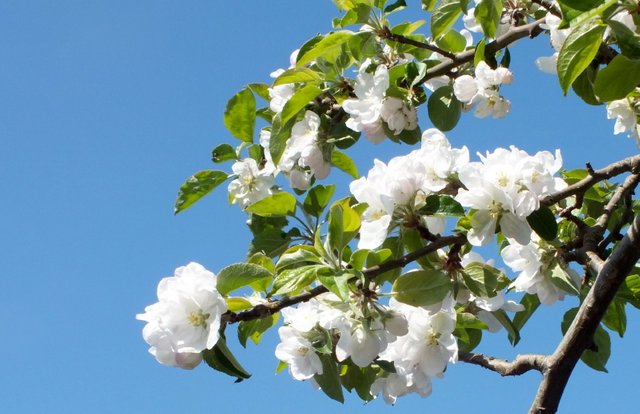Self-Inquiry: Asking Yourself the Difficult Questions!
On many occasions, when people feel confronted with difficulties in life- particularly things that relate to mental health - their initial thought is to reach out for counseling or therapy. That is, if they don't just choose to ignore the problem.
But sometimes that's not really the best thing we can do. And, a lot of times, we actually have better answers ourselves... we just have to understand how to unlock them!
Back when I was in my early thirties, I started doing a lot of work on myself. "Self-improvement", I guess you could call it. There was no shortage of things in need of improvement!
One of the things I did was attend a lot of self growth and personal development workshops trying to better understand what was going on, and trying to better understand my own thoughts and my own psyche.
At the time, I didn't really think of my troubles and anxiety as something I needed to seek therapy for, so I sought understanding through different paths.

One of the very useful things I learned in the course of attending a number of retreats and workshops was the process of self-inquiry.
In a sense, it's a lot like counseling yourself. I've always done a lot of journaling, and I found writing from the heart to be extremely cathartic because when I was using pen and ink and just writing in my paper journal I always felt like I could be very honest with what I wrote down. That honesty was an outgrowth of the fact that I believed that nobody would ever read my journals except myself and so I had nothing to hide.
Self-inquiry works a bit like that as well, in that it seeks to get us to engage with our innermost thoughts at a level where the answer comes from a place where we feel like we have nothing to be afraid of and nothing to hide.

Who would you be, if you had nothing to hide?
If you never felt like anybody was going to judge you? If what you said was just okay and would be listened to without judgment by somebody who was like a best friend?
Not saying they necessarily would agree with your perspective, just that they would listen neutrally without judging you for what you're saying.
Although I have been in therapy a number of times in the course of my six decades on this planet, I have probably learned more about myself through the process of self-inquiry, than I have through therapy. To be perfectly blunt, self-inquiry isn't guided by as many limitations and restrictions as therapy!

Of course, the thing is, you have to be willing to hear the answers you give and actually acknowledge them even if there's something you don't particularly want to admit to!
We tend to know the truth about ourselves, even if we don't much care for it!
Thanks for stopping by and have a wonderful remainder of your weekend!
How about you? Are you familiar with self-inquiry? Have you ever tried to be your own therapist? Did it work? Leave a comment if you feel so inclined — share your experiences — be part of the conversation!
(All text and images by the author, unless otherwise credited. This is ORIGINAL CONTENT, created expressly for this platform — Not posted elsewhere!)
Created at 2024.01.14 01:20 PST
x678/1913

I learnt this as part of my MBA (self-development), a process they called reflection. It’s probably the most soul searching thing that’s easy to do regularly - analysing one’s emotions throughout the day and asking “why did I feel / react like that?” Particularly focussing on negative emotions that you would prefer to avoid.
It’s an amazing thing to be able to do. It’s for you, you’re honest with yourself. I even said that I wouldn’t read it myself. A process of self-development that will never be seen again.
Is this the same as cognitive therapy? 🤷
That's really interesting! My entry point was more from the "New Age" angle, although I am not particularly "woo-woo."
One of the things that appealed to be about it was a workshop presenter who suggested you can accomplish and reach insights in a matter of weeks/months that most likely would take you five years of talk therapy (at £80 per session!) to reach.
Terminology is a slippery beast. Cognitive therapy? Maybe so. But it's also taking the role of "the observer" from Buddhist practices. Observe your emotions, rather than react to them.
I suppose it all depends upon how honest somebody is... I'd suggest that therapy is more difficult to make progress with because you've not only got the hurdle of being honest with yourself, but also with a stranger.
I like this.
It's interesting that concepts from woo-woo New Age 😉 and Buddhism are now being taught to business minds... it feels like there's a contradiction in here somewhere.
Thank you, friend!


I'm @steem.history, who is steem witness.
Thank you for witnessvoting for me.
please click it!
(Go to https://steemit.com/~witnesses and type fbslo at the bottom of the page)
The weight is reduced because of the lack of Voting Power. If you vote for me as a witness, you can get my little vote.
I'll start by complimenting the photos... wonderful! Are you familiar with self-inquiry? Yes, it's part of our self-awareness process. Have you ever tried to be your own therapist? No, not that. Self-awareness also presupposes understanding one's vulnerabilities; however, if any vulnerability becomes an obstacle/disorder in daily activities, I confess that I would have to seek specialized help. I try to read some literature that allows me to define behavioral strategies for self-analysis. Thank you for the post.
Thanks for sharing such an awesome post
@denmarkguy
You have received a 100% upvote, resteem and a feature in our latest LuvBug Blog Curation post!
HAVE A LOVE-FILLED DAY!!
With hugs from...